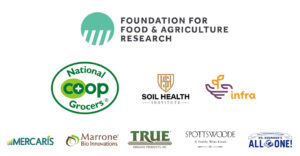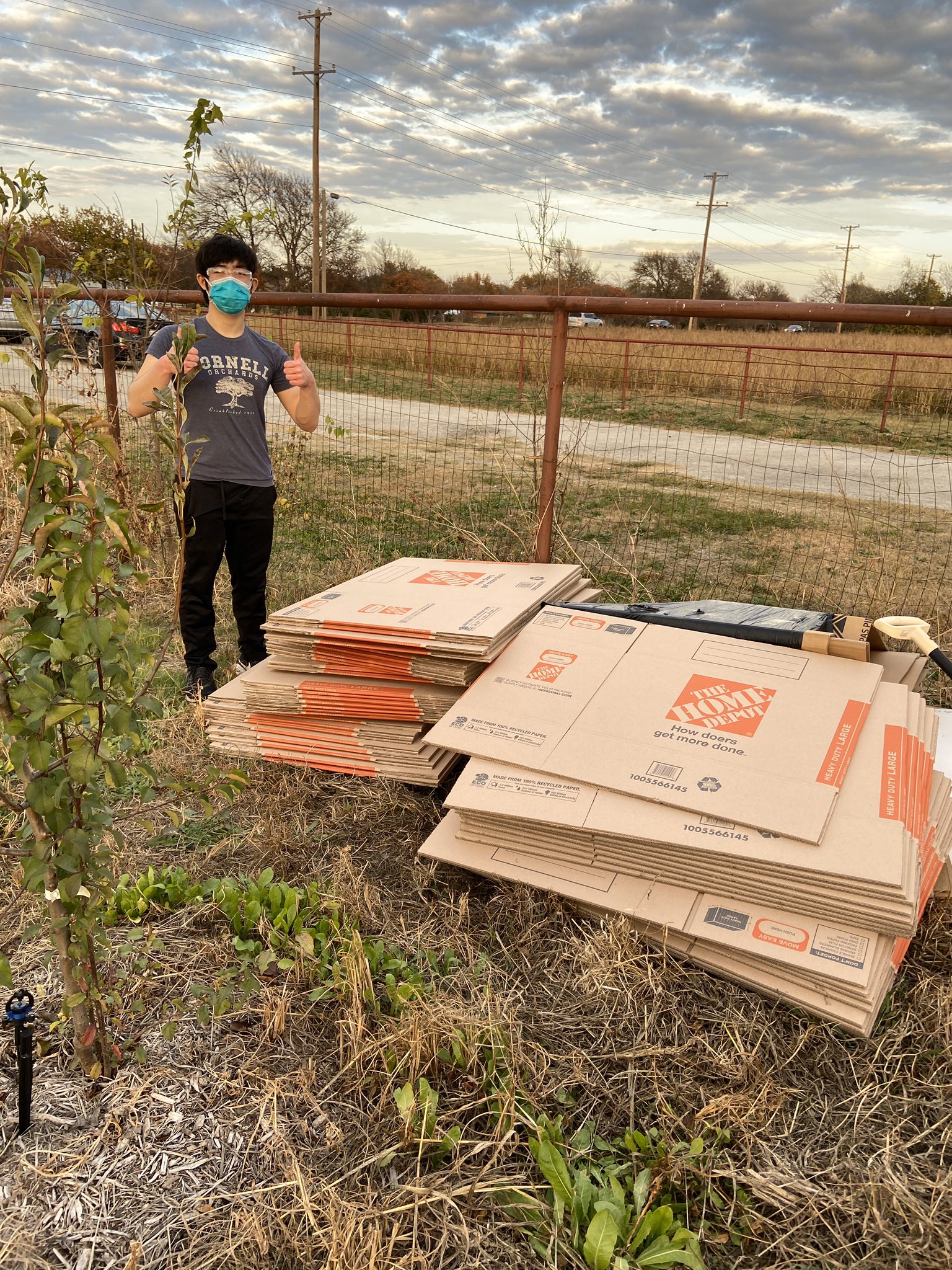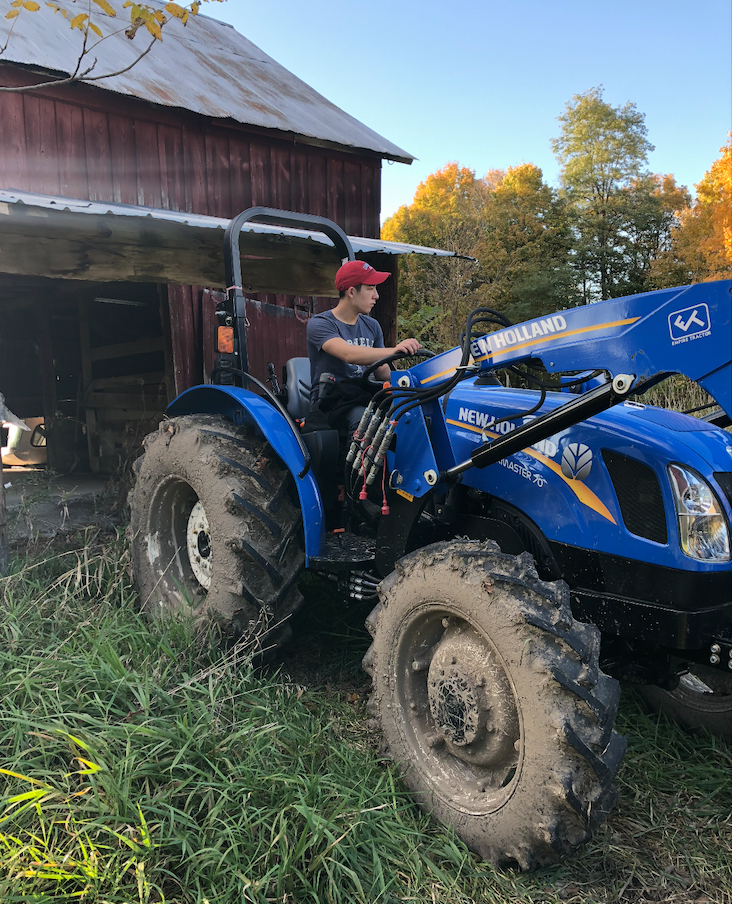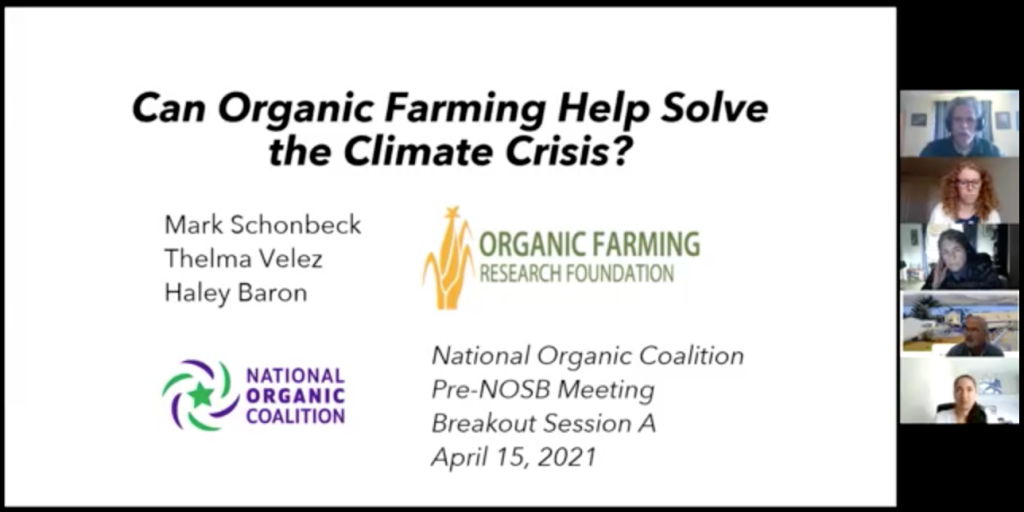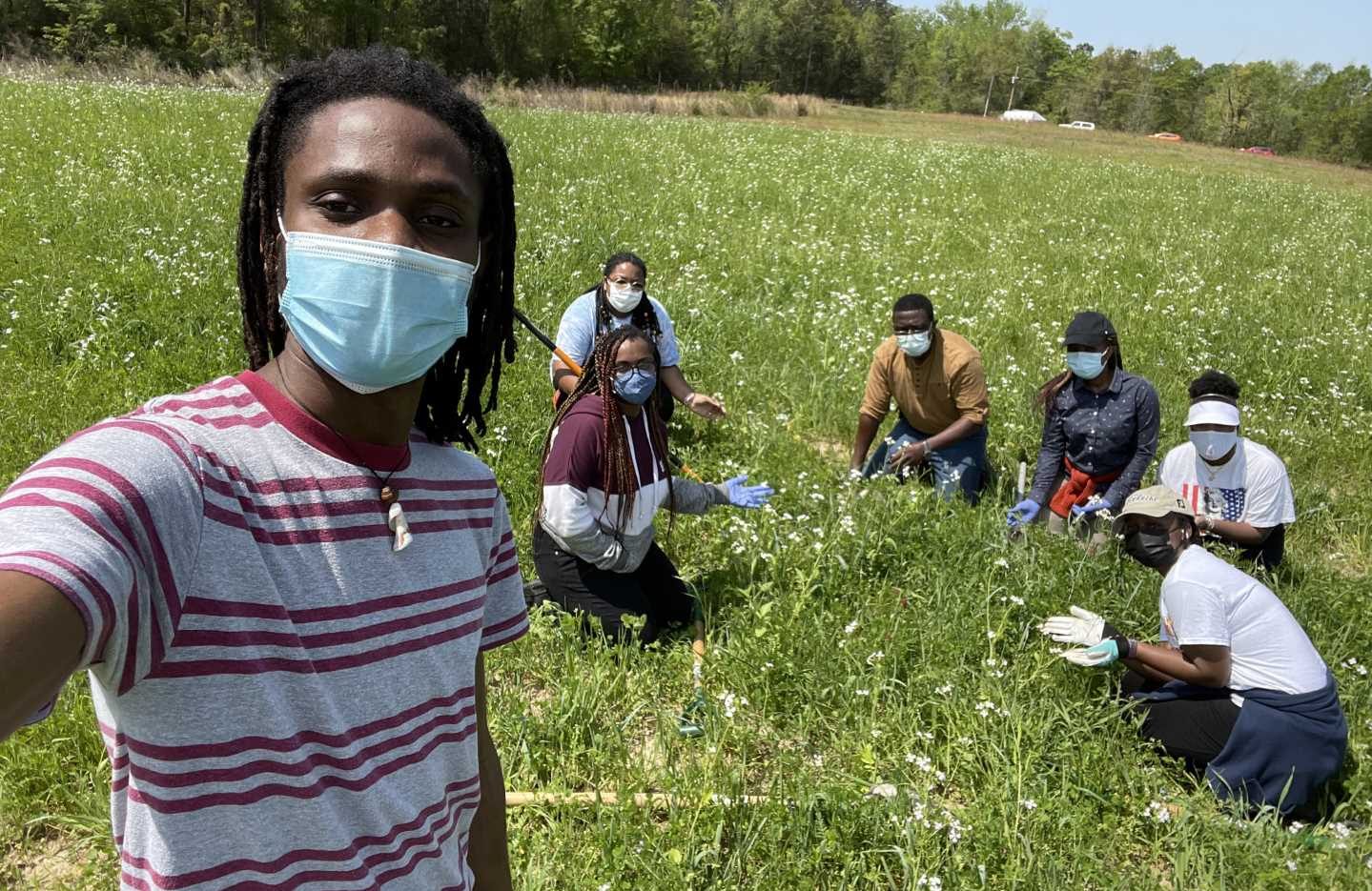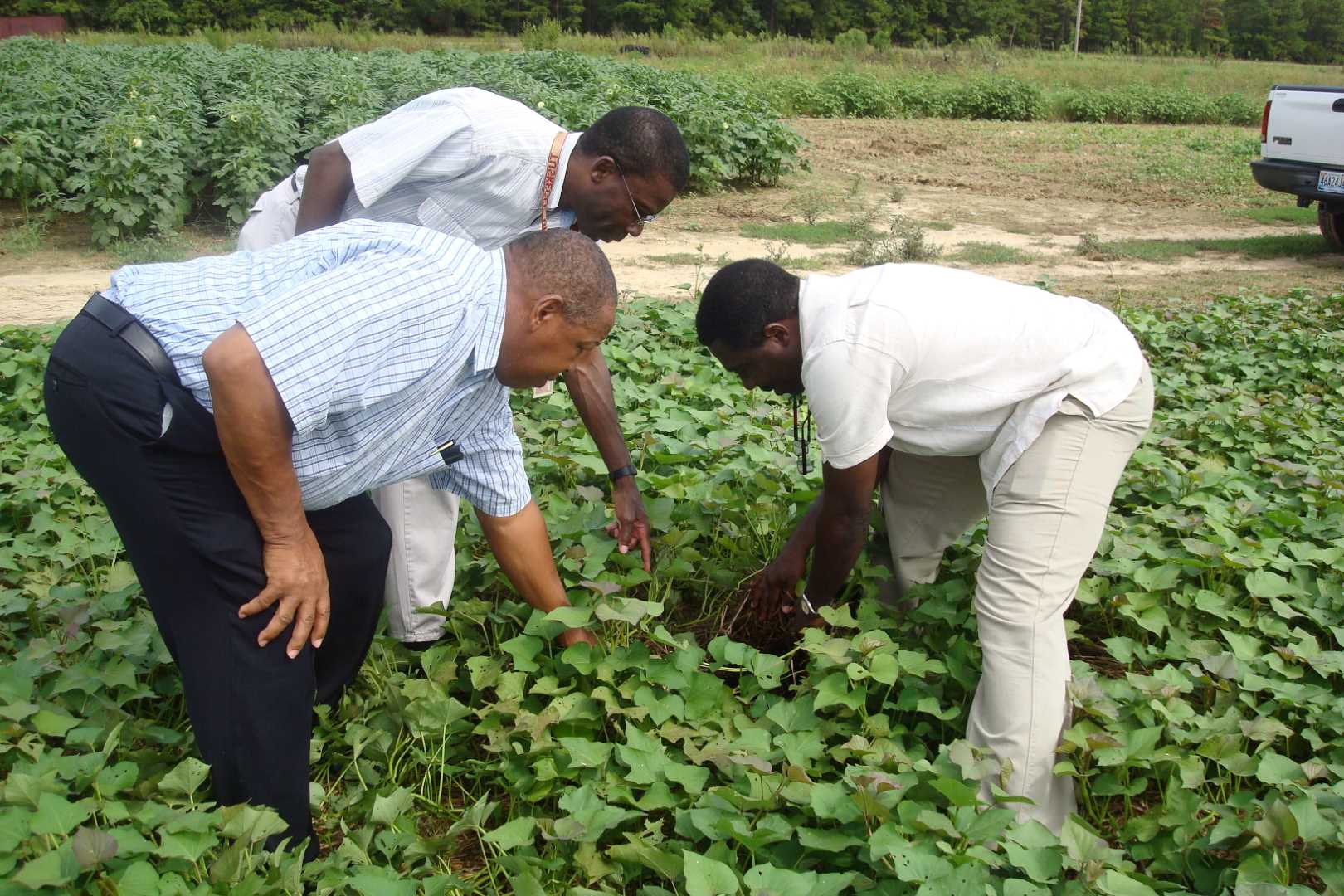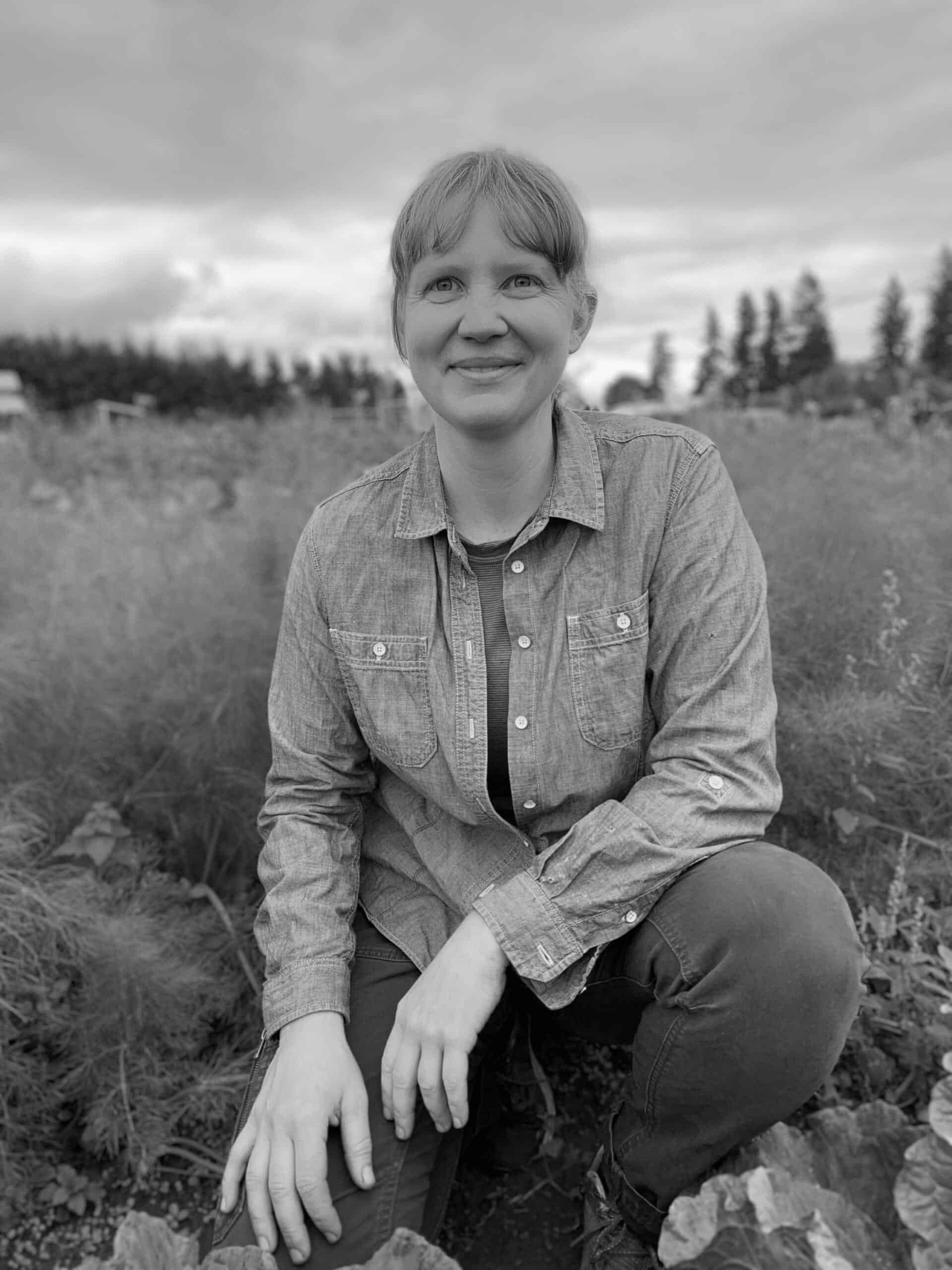By Ferd Hoefner, OFRF’s policy advisor
By improving soil health and increasing soil organic matter, farmers and ranchers draw down atmospheric carbon levels while simultaneously making their farms more resilient to climatic and other future shocks. Farmers and scientists throughout the world recognize agriculture as a critical partner in mobilizing around climate change, and organic agriculture, with its central focus on improving the soil, can help lead the way!
That is the premise of a bill recently re-introduced in Congress to serve as a blueprint for the needed policy changes to help U.S. agriculture reach net zero greenhouse gas emissions by 2040. The Organic Farming Research Foundation was one of scores of groups endorsing the introduction of the Agriculture Resilience Act of 2021 (ARA) when the bill was introduced in April by Representative Chellie Pingree (D-ME), herself an organic farmer, and Senator Martin Heinrich (D-NM).
The House bill (H.R. 2803) currently has 20 sponsors, including Rep. Abigail Spanberger (D-VA), the chair of the Conservation Subcommittee of the House Agriculture Committee, while the Senate bill (S. 1337) currently has 4 sponsors, including former presidential primary contenders Bernie Sanders (I-VT), Kirsten Gillibrand (D-NY), and Cory Booker (D-NJ).
OFRF not only contributed to the ARA, but also recently submitted comments to the U.S. Department of Agriculture making recommendations for steps the Administration can and should also take on its own, without requiring further action from Congress. These efforts will assist farmers and ranchers to meet the challenge represented by climate change, focusing on the policy needs of organic farmers.
The ARA
The ARA is a farmer-focused, research-driven path to net zero agriculture. The legislation establishes ambitious yet achievable goals for the agriculture sector to reach net zero by 2040. The bill improves and expands upon many existing programs while creating a few new grant programs to support its six programmatic building blocks:
- Increasing investments in agricultural research
- Improving soil health
- Supporting the transition to pasture-based livestock
- Ensuring farmland preservation and viability
- Promoting on-farm renewable energy
- Reducing food waste
Congress will soon be considering and voting on a massive infrastructure, climate, and jobs bill based on the American Jobs Plan proposed by President Biden. The ARA sponsors are proposing that key elements from their bill form the backbone of the agricultural portion of the several trillion-dollar bill that will cover energy, transportation, housing, agriculture and other climate-related sectors of the government and economy.
OFRF readers and supporters can help push for a central role for agriculture, including organics, in the upcoming debate over the infrastructure and climate package by encouraging their Senators and their Member of Congress to become an ARA co-sponsor. The more co-sponsors, the more attention the bill will receive as Congress begins to act on the President’s proposal!
Organic-specific Parts of ARA
The ARA includes several organic-specific provisions, such as an expanded Organic Initiative within the Conservation Stewardship Program (CSP) and a retooling of the Organic Certification Cost-Share Program, as well as a wide variety of programs and initiatives that will aid organic farmers. Here is a partial rundown.
Farm Conservation Expansion – The bill would create new conservation initiatives, such as a block grant program to aid state soil health programs and a long-term working grasslands/managed grazing program within the Conservation Reserve Program. It would also greatly increase funding for the Conservation Stewardship Program, Environmental Quality Incentives Program (EQIP), and Agricultural Conservation Easement Program.
Within CSP, it would build on the organic farming provisions added by the 2018 farm bill by requiring payments for conservation enhancements specific to organic farming and organic transition. Within EQIP, it would eliminate the lower payment cap currently in place for organic farms versus conventional operations. It would also double the funding available for on-farm soil health trials and demonstrations.
Across all conservation programs, it would increase funding for conservation technical assistance, increase set-asides for beginning and socially disadvantaged farmers and ranchers, and mandate a review of payment schedules to accelerate progress on reaching net zero goals by 2040.
Organic Certification Cost Share – The ARA proposes to lift the maximum cost-share amount per scope from $750 to $1,000 a year. It would also make the program an entitlement, meaning that the program would meet 100 percent of demand each year, rather than being capped by a specific dollar amount. The current cap forced USDA last year to reduce maximum payments to $500 per scope due to farmer demand outstripping available funding.
Pastured Livestock and Poultry – The legislation encourages sustainable, grazing based livestock production through designated funding for grazing land management, a new animal raising claims regime at USDA, to establish strong enforceable standards. It would also establish a small processor grant program to enable the growth of small and very small slaughter and processing facilities to better service organic, grassfed, pasture-raised and other alternative agricultural farming and ranching operations.
Agricultural Research – In addition to the specific organic research programs at USDA, a variety of other programs also help service the organic sector. The ARA would provide a major boost in funding for the Sustainable Agriculture Research and Education (SARE) program at the National Institute of Food and Agriculture (NIFA), enabling SARE to begin an agriculture and food system resilience grant program. It would also provide a major boost to the Agricultural Research Service’s (ARS) Long-term Agroecological Research (LTAR) Network, which currently includes long-term comparative organic farming trials, trials that could then be expanded to all regions of the country. The bill would also require both NIFA and ARS to fund at least $50 million worth of public breeding research each year, with a focus on delivery of resource-efficient, stress-tolerant, regionally adapted livestock breeds and crop cultivars, including organic varieties, that help build resilience to climate change and support carbon sequestration.
Those are just a few of the advances included in the ARA. For more information, see Rep. Pingree’s net zero agriculture website and this section by section summary of the bill. To see what you can do to help, visit this action page by our partners, National Sustainable Agriculture Coalition (NSAC).



